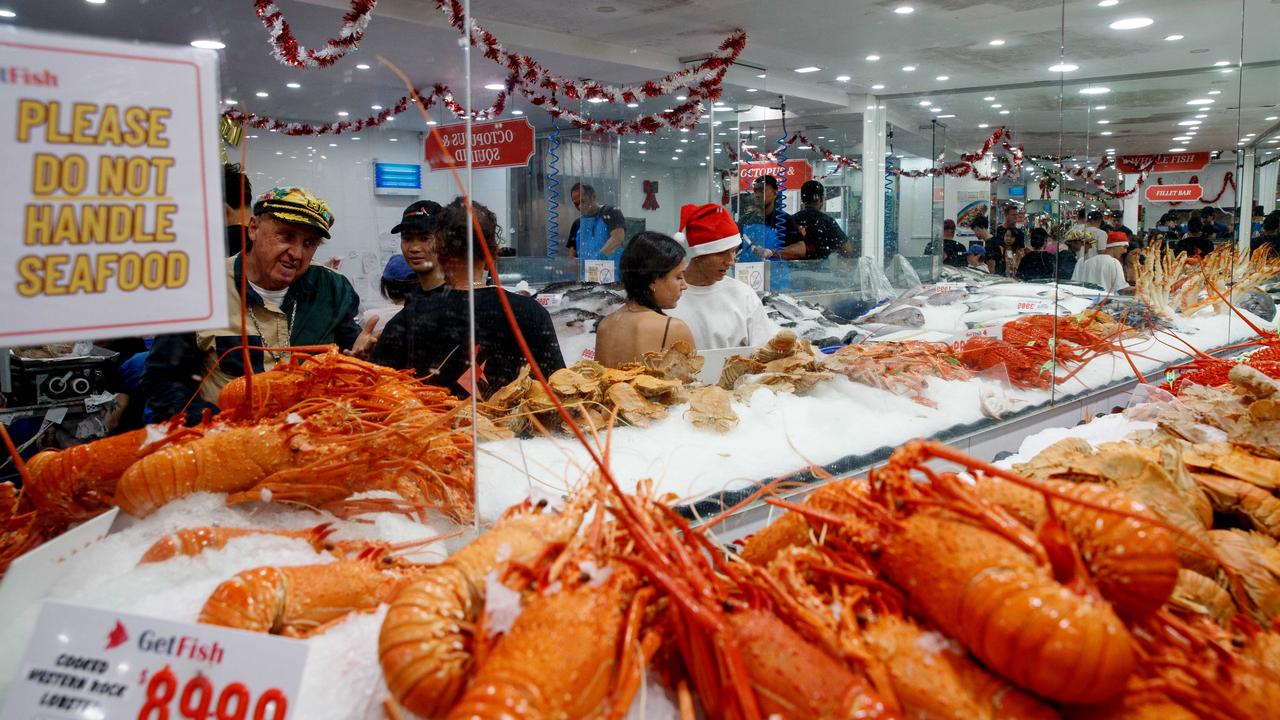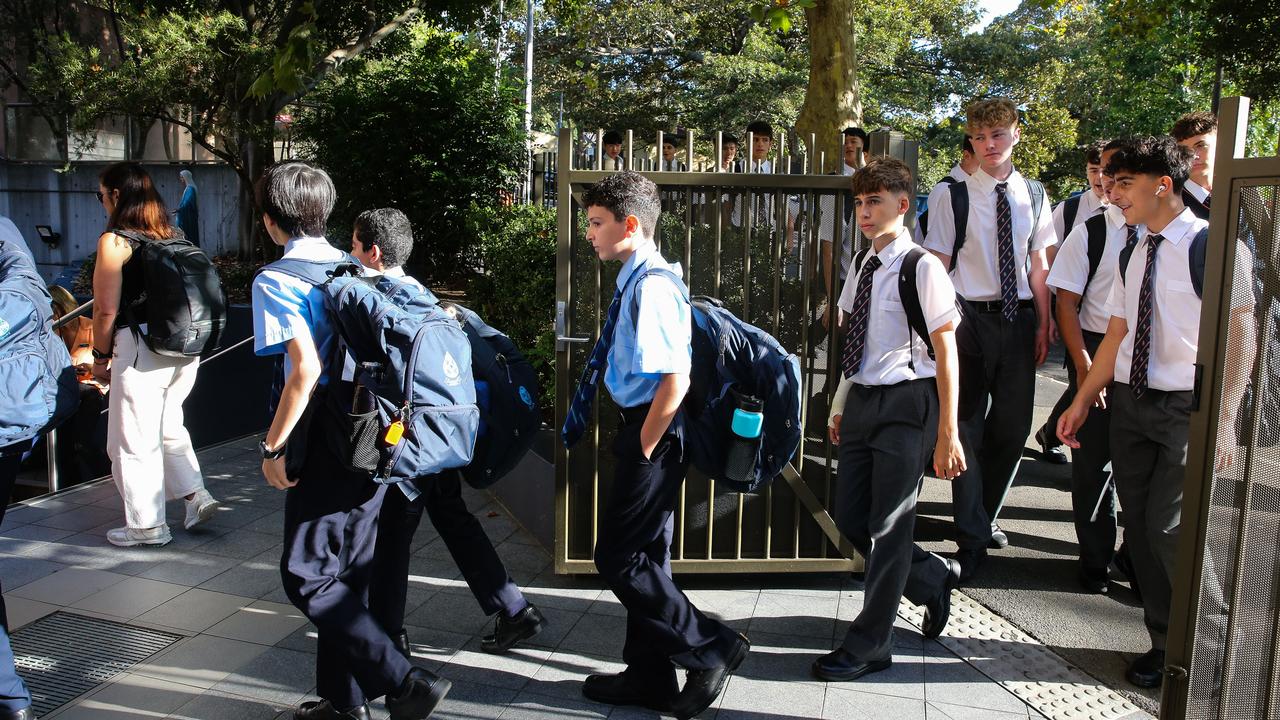‘Own fault’: China slams Australia move and says sour relations are ‘a lesson’
As Australia-China trade relations reach a pivotal moment, Chinese media has a stern “lesson” for Australia.
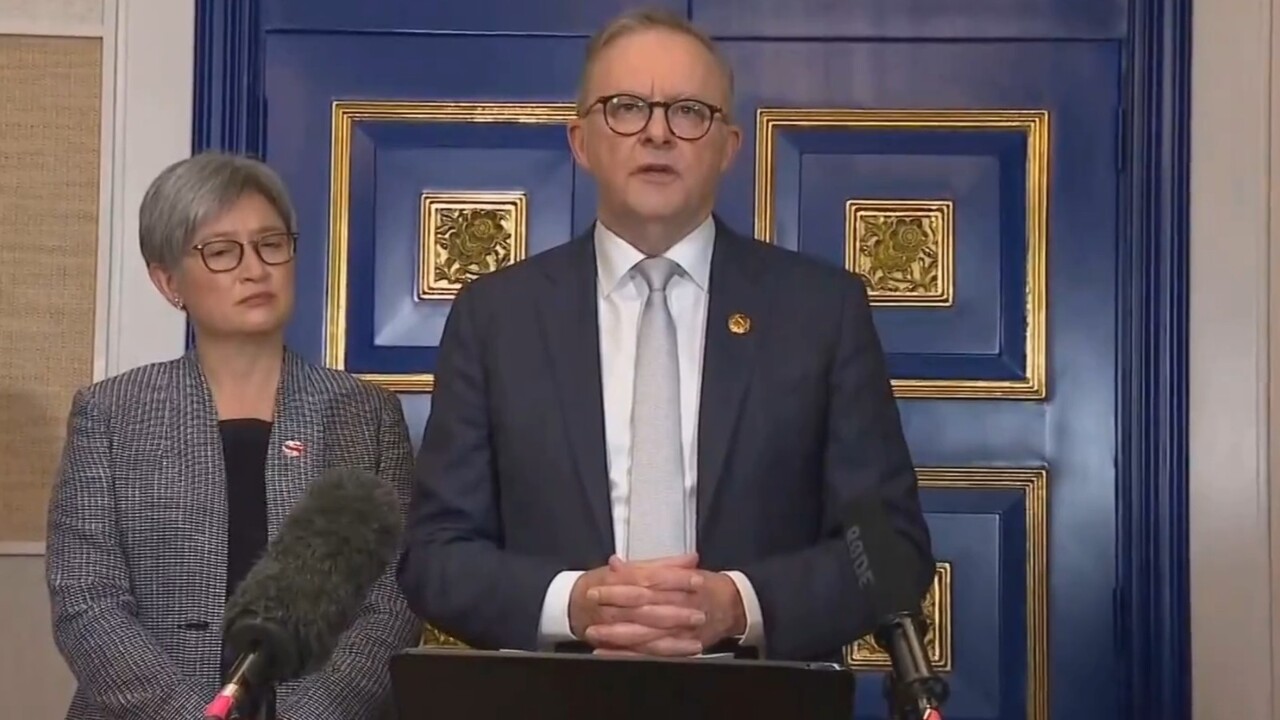
Economy
Don't miss out on the headlines from Economy. Followed categories will be added to My News.
Australia’s trade tensions with China “are its own fault”. And the soured relationship serves “as a lesson not only for Australia but also for other Western countries in how to handle their relations with China”.
That was the message being broadcast by Communist Party-controlled media outlets the South China Morning Post and Global Times, even as Prime Minister Anthony Albanese met with China’s number two, Premier Li Qiang, on Thursday.
“After the Albanian (sic – read Albanese) government came to power and began adjusting its policy toward China, China-Australia relations rebounded,” an anonymous editorial in the Global Times states.
“We hope that at this moment of ‘restarting’ bilateral relations, the Australian side should seriously listen to the thoughts of China, which is important for truly promoting the warming of bilateral relations.”
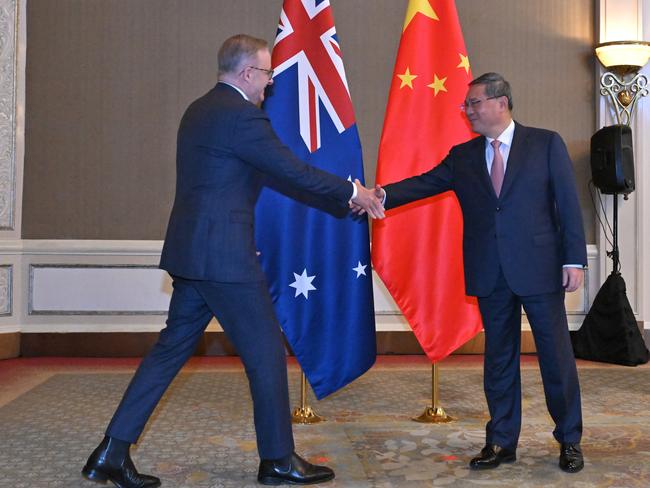
Similarly, a named op-ed in the SCMP (by Australian international affairs analyst Sameed Basha) places the blame squarely in Canberra’s lap.
“Australia has made its decision and cannot play the victim,” he writes.
“Its Chinese-dependent economy is increasingly at odds with the carefully manufactured threat from China, failing to serve its people and interests at the behest of siding in a zero-sum game with the United States.”
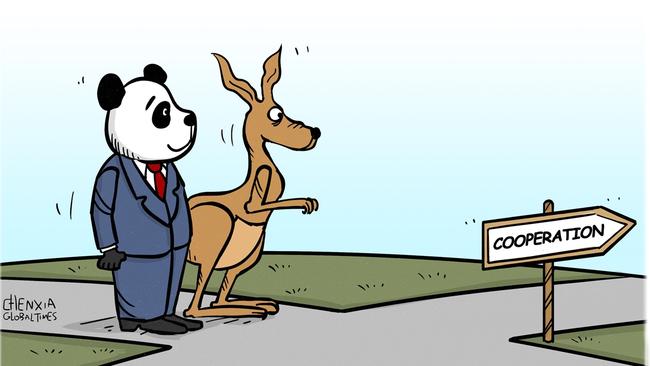
So, is Australia’s economy beholden to the whims of Beijing?
Does its prospects hang in the balance with the success – or failure – of China’s faltering economy?
“According to Productivity Commission … China’s trade coercion has proven barely more than a rounding error for the Australian economy,” argues Lowy Institute economics analyst Roland Rajah.
And Professor James Laurenceson, director of the Australia-China Relations Institute (ACRI), thinks Australia’s economic exposure to China is overrated. “If China sneezes, whatever the headlines might blare, don’t be surprised if Australia only gets a mild case of the sniffles,” he states.
Voices of reconciliation
This week’s meeting in Jakarta on the sidelines of the East Asia Summit is the first high-level dialogue between Canberra and Beijing since relations soured early in 2020.
In the lead-up to the event, Foreign Minister Penny Wong said she hoped it would help “stabilise” relations.
Today, Premier Li “emphasised a healthy and stable China-Australia relationship is in line with the fundamental interests and common aspirations of the two peoples”, according to China Daily.
Beijing needs stable, secure imports following extensive floods and drought devastated crops and unsettled mining operations across the country this year.
China’s economic bans previously avoided iron ore and natural gas, as its economy is dependent on these.
So it’s little surprise Australia resumed barley shipments last month after China scrapped its 80.5 per cent Covid-era tariffs in May. And widespread power outages across China last year prompted the resumption of Australian coal exports in March.
Among other positive signals from Beijing are an easing of cotton and timber controls, an uptick in tourism and a resurgence of visa applications from Chinese international students.
But stumbling blocks remain.
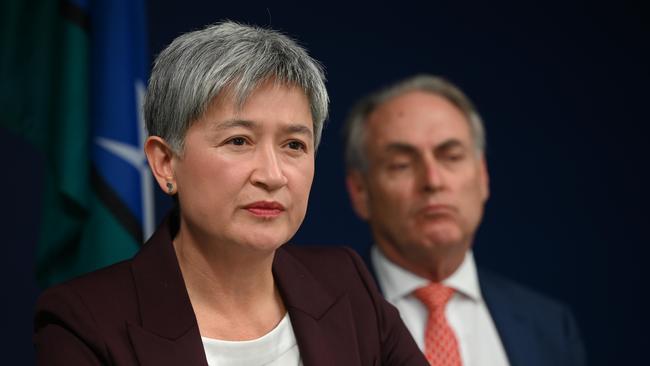
Overwhelming restrictions still apply to Australia’s copper, wine, lobster and beef exports.
For China’s part, Li “expressed his hope that Australia will adopt an objective and fair attitude towards investment and operation by Chinese companies in Australia,” China Daily reports.
In 2018, Australia banned Chinese tech giant Huawei from building its 5G network because it was subject to intrusive Chinese national intelligence laws.
That, combined with Canberra’s call for an independent inquiry into the origins of the Covid outbreak in the Chinese province of Wuhan, is widely believed to have prompted the punitive sanctions in the first place.
“The ups and downs of China-Australia relations … are extremely representative. It is obvious that Australia is primarily to blame for this,” insists the Global Times. “The detours taken by China-Australia relations serve as a lesson not only for Australia but also for other Western countries in how to handle their relations with China.”
Actually, maybe that's a mistake that GT should correct ASAP.
— Zichen Wang (@ZichenWanghere) September 6, 2023
Australia is NOT "primarily to blame for this" - It is ENTIRELY Australia's fault.
Trade winds blowing
Treasurer Jim Chalmers last month warned Australia’s economy could be “substantially weaker” due to China’s looming economic crisis.
“It is concerning to see the weakness, the softness, in the recent weeks and months in the Chinese economy because it has obvious implications for us here in Australia,” he said.
He has cause for concern. Australia’s trade with China in the year to June earned a record $192 billion, representing about 40 per cent of the country’s $460 billion in exports.
On the surface, that also makes the threat of continued – or enhanced – sanctions sound serious.
As China-Australia ties continue to improve with increased official interactions, some in Australia call for a review in China’s anti-dumping case against Australia’s wine exports to China. Insiders at Chinese wine industry associations say Thursday they haven't heard of plans to… pic.twitter.com/9zad7Wu0eR
— Global Times (@globaltimesnews) September 7, 2023
“If Australia was prevented from exporting its key commodities – including coal, beef, timber, wine, barley, cotton and copper – to China for a full year, it would cost the Australian economy an estimated $23 billion,” warns Basha in the SCMP.
“As a result, there has been a consistent flurry of Australian diplomatic activity trying to ease tensions with China.”
These commodities are the same as those targeted by Beijing since 2020. In total, they represent about 1 per cent of Australia’s GDP.
Australia’s Productivity Commission estimates that the three years of Beijing’s interventions have cost Australia about $31 billion. And, apart from a few particularly exposed industries, such as wine, alternative international markets have already made up much of that shortfall.
Would a Chinese economic downturn be worse?
“Some perspective is in order,” says Laurenceson. “It’s certainly true that China is, by far, Australia’s most important export market. Still, the value of these exports amount to around 7.5 per cent of GDP. Compare that with domestic sources of demand such as household consumption that stand at 50 per cent of GDP.”
Despite economic hardships and diplomatic posturing, China remains the biggest buyer of Australian commodities (agricultural and mineral exports).
“It has been clear for some time that China’s campaign of trade coercion against Australia has been rather ineffectual, either in imposing significant economic costs on Australia or in forcing the substantive changes in Australian policy sought by Beijing,” argues the Lowy Institute’s Rajah.
“As I wrote back in early 2021, China’s trade coercion has carried a big bark but small bite.”
Diplomatic differences
Premier Li told Prime Minister Albanese of “his hope that Australia will adopt an objective and fair attitude towards investment and operation by Chinese companies in Australia,” China Daily reports. “Both sides should handle differences properly in the spirit of mutual respect, seeking common ground while shelving differences, and promoting further improvement and development of bilateral relations.”
Li said the “joint efforts” of China and Australia over the past year had resulted in “positive improvement”.
“Yet it is not enough,” insists the Global Times editorial. “It specifically requires Australia to overcome internal and external pressures to the greatest extent. Frankly speaking, Australia has not done enough in this regard, and some mistakes are continuing.”
Chinese Premier Li Qiang met Australian Prime Minister Anthony Albanese on Thursday on the sidelines of the East Asia Summit in Jakarta. A healthy and stable China-Australia relationship aligns with the fundamental interests and common wishes of the peoples of both countries.… pic.twitter.com/3hQK0NI3Kg
— Global Times (@globaltimesnews) September 7, 2023
And Beijing is keen to define what those “mistakes” are.
“Australia is also seen as taking a leading role in promoting US interests in the region,” Basha states in the SCMP. “This has taken the form of expanding the presence of US military personnel on Australian soil, trying to persuade other countries not to use Huawei-based systems, calling for an independent investigation into the origins of the Covid-19 pandemic, and more.”
“More” includes Canberra’s support of Taiwan, India, Vietnam, Malaysia, Indonesia, the Philippines and Japan in rejecting China’s ambitions over their territories.
For its part, Beijing insists those problems only exists because of Washington’s interference.
‘We all have had the immediate experience of how unity leads to prosperity while division brings decline,” Premier Li told the East Asia Summit.
“China should avoid trying to isolate Australia from the US,” Basha advises Beijing. “Instead, it should evaluate its relationship with Canberra based on the merits of its current activities and coercive policies created by Washington.”
But Beijing also warns it has limited patience.
“We have spoken enough to Australia in the past two years, but how much Australia can take in is not for us to decide,” the Global Times concludes. “However, we have received Australia’s sincerity in wanting to strengthen communication with China and will respond with goodwill.”
Jamie Seidel is a freelance writer | @JamieSeidel
Originally published as ‘Own fault’: China slams Australia move and says sour relations are ‘a lesson’




